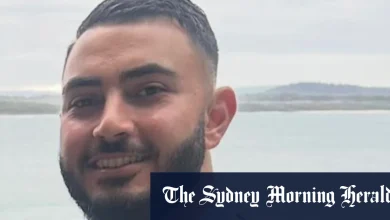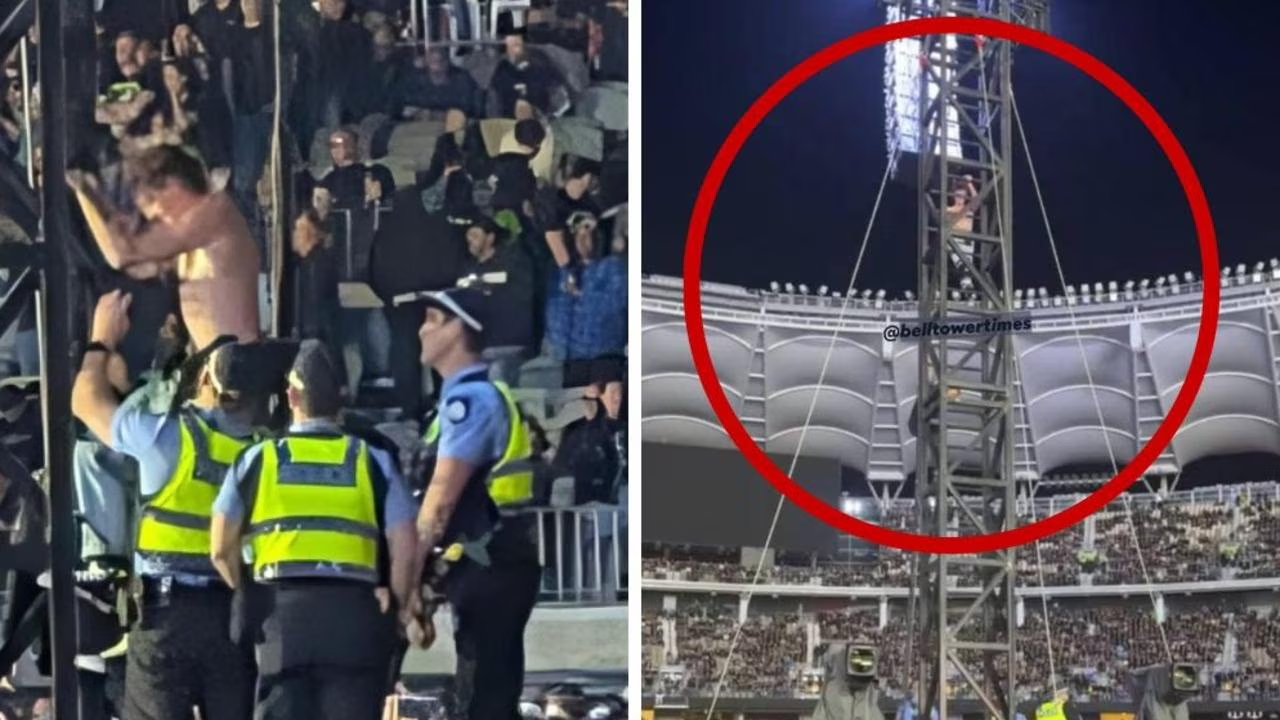Alleged suspect we aren’t allowed to name

The person of interest in the disappearance of a little girl on a NSW beach more than 50 years ago has today been publicly named under parliamentary privilege.
MP Jeremy Buckingham took the extraordinary step on Thursday morning after the man failed to meet a “midnight deadline” set by Cheryl’s family to come forward and “give them answers”.
On the eve of the proposed public outing, Cheryl’s older brother Ricki Nash, who was with her in the minutes before she vanished from Fairy Meadow Beach in January 1970, told news.com.au “it is going ahead as Mercury has not come forward at this point”.
Mercury was the pseudonym given to the Victorian man when he was charged with murder and extradited to NSW in March 2017.
The arrest came after cold case detectives Frank Sanvitale and Damien Loone discovered a confession made to police by a teenage boy a year after three-year-old Cheryl vanished.
Justice Robert Allan Hulme however ruled the interview from April 1971, was inadmissable because there was no parent, adult or lawyer accompanying the then 17-year-old.
The Judge decided the interview was ultimately unfair to the accused, and should be excluded from the evidence in the trial.
All charges were dropped and Mercury walked free. He had denied the charges.
Last week Mr Nash said his family would give Mercury one week to come forward and talk to them – or Mr Buckingham would use parliamentary privilege to release his name.
“If Mercury maintains that his confession was false, the path forward is simple,” Mr Nash said.
“He can voluntarily attend a police station, arrange to meet with our family in the presence of his legal counsel, and explain why he confessed to Cheryl’s abduction and murder.
“He should also clarify how he came to know intimate facts about the crime that were never released publicly.
“If he can genuinely prove that his confession was fabricated, our family and indeed the public can finally have clarity and move forward. However, if his confession is truthful, then it’s time for everyone involved to accept the consequences that follow. Those next steps must rightly be determined by a court of law.”
Mr Nash said his family’s “only goal is to uncover the truth and ensure justice is served — not just for Cheryl, but for all those whose lives have been affected”.
“IIt is difficult to understand why neither the police nor Mercury’s legal representatives have come forward to indicate a willingness to meet and clarify matters — particularly if the confession was false,” he said.
“Such a step could have spared his family the scrutiny and distress that will inevitably follow in the coming days.”
WHY WE CAN’T NAME MERCURY
Mr Buckingham revealed the name as he has legal protection for what he says in parliament – the privilege that Parliamentarians have is an almost absolute protection.
However, the media and public do not in turn automatically receive the same kind of protection for repeating those matters outside the walls of parliament.
Mercury was a minor at the time of the alleged offending and section 15A of the Children (Criminal Proceedings) Act 1987 generally prohibits identifying underage alleged offenders.
WHY MERCURY’S CONFESSION WAS RULED INADMISSABLE
Mercury was aged 15 at the time Cherly disappeared.
Justice Hulme, in his ruling in the NSW Supreme in 2019, said that on April 1971 Mercury was interviewed by police “and confessed to having abducted and murdered the little girl”.
He made further admissions in a “walk-through” style interview on May 3, 1971, the court heard.
“Police then sought evidence to confirm the truthfulness of the accused’s confession. In the end they were not satisfied that they had enough in this respect and no charges were laid,” Justice Hulme said.
“A reinvestigation commenced in 2016. Police obtained further evidence which resulted in them arresting and charging the accused on March 22, 2017.”
Mercury’s legal team objected to the admissibility of the typewritten and signed record of the April 29, 1971 interview and the Crown accepted that its case could not succeed without it.
The defence argued for the exclusion of the interview record, asserting that Section 13 of the Children (Criminal Proceedings) Act 1987 (NSW) mandated the presence of an independent adult, which was absent without “proper and sufficient reason” given the availability of adults at the detention facility and the accused’s known vulnerabilities.
Mercury’s legal said the interview was conducted unfairly, with the accused being “beguiled” into confessing before being cautioned, and that his significant personal attributes — including below-average intelligence, a disturbed mental state, immaturity, and vulnerability to suggestion — rendered the admission of the evidence unfair.
The Crown argued there was “proper and sufficient reason” for the absence of an independent adult, as no such statutory requirement existed at the time of the interview.
Furthermore, the Crown argued that the accused, being 17 years old and having clearly understood he was confessing to murder, did not suffer from police overbearing, and the truthfulness of his statement was not adversely affected, thus warranting its admission into evidence.
The judge found the interview should not be admitted in evidence having regard to the “particular circumstances of the case” – primarily because of the manner in which the interview was conducted and the particular vulnerability of the accused at the time.
INTERVIEW EXCERPT
Q: “Mr. Lecky (the manager of the Metropolitan Boys’ Shelter, the juvenile detention facility where the accused was being held at the time of the police interview) has informed us that you have some knowledge of events which may assist us in our inquiries relative to the disappearance of the child … from Fairy Meadow Beach. Would you like to tell us what this knowledge is?
A: Yes, I was down the beach that day and I saw a man drive past me in a car with a little girl. I walked along the beach to Wollongong and I saw the man driving back on his own.
Q: Do you know who this man is?
A: No.
Q: Can you give us any description of the man or the girl?
A: The man had a dark growth on his face and his hair was hanging over his right eye, but I cannot describe what the girl looked like.
Q: We have been informed by Mr. Lecky that you have appeared to be worried about something. Would you like to tell us if this is so?
A: Yes, I am worried, I did that to the little girl, I didn’t mean to do it.
Q: Do you mean that you had something to do with the disappearance of the child, …?
A: Yes.
Q: I am now going to ask you certain questions about this matter I must warn you that you are not obliged to say anything unless you so desire as anything you do say may be later given in evidence. Do you understand that?
A: Yes.
Q: Would you like to tell us what you know about the disappearance of this girl?
A: I arrived at Fairy Meadow beach early on the morning of the 12th January, 1970, I hung around the beach area until I seen these bunch of children come up from a swim. They all went into the changing room and I took that they changed themselves then they came out of the change room. I saw this little girl get a drink from a bubbler outside the change room. Some of the children started to walk away and this little girl hung back. I came around from the back of the shower block and grabbed the little girl. …”





